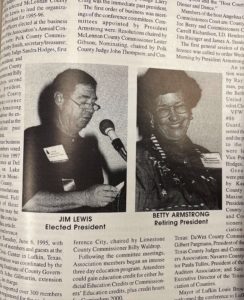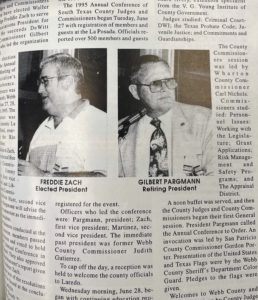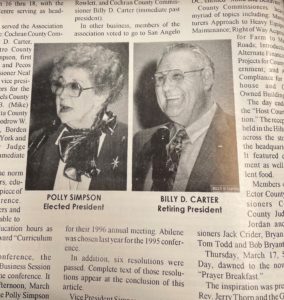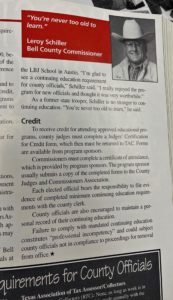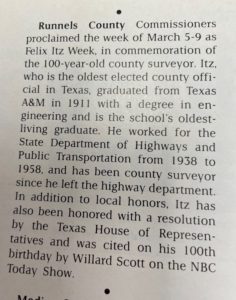In October 2022, the County Judges and Commissioners Association of Texas will conduct its 100th Annual State Conference. Texas County Judges and Commissioners, known for their servant leadership, have joined together for a century to not only educate themselves as required by law, but to also learn and grow from one another’s experiences.
As the Official Publication of the County Judges and Commissioners Association of Texas, County Progress has been privileged to record the history of hundreds of regional and state meetings along with county news from across the Lone Star State.
For the next year, we will continue to celebrate a Century of Service with glimpses into each decade. This month, we take a glance back at the 1990s!
County Judges And Commissioners Association Of Texas
ARTICLE II — PURPOSE
Section 1. It shall be the purpose of this Association to create a greater interest in county government and to unite its members to promote better business methods in county government, and to foster the general welfare of county government throughout all counties in the State of Texas.
Section 2. This Association shall encourage active participation in governmental affairs, particularly that pertaining to county government, by all members of Commissioners Courts of Texas.
Section 3. This Association shall uphold the principles of good government in Texas. – Excerpt, CJCAT Constitution
Excerpt From February 1994 Issue of County Progress:
Curriculum 2000
Editor’s Note: This educational program, now known as Commissioners Court Advanced Curriculum, is still ongoing. More than 700 officials have earned their advanced certification. For more information, go https://bit.ly/3qZGNSg.
“President (Billy Jo) Plaster awarded a ‘Certificate of Appreciation’ to Commissioner Neil Fry for his hard work in developing ‘Curriculum 2000.’ Fry told the audience that we are living in exciting times. The problems that are coming back to local governments can and will be solved by local people.
‘Curriculum 2000’ will help prepare county officials to solve the problems they face. In its inaugural year, Fry acknowledged, the program may need to be fine-tuned. But, he stated, it was never meant to be an unchanging program. It will grow, expand, and mature through the next few years.
Fry presented ‘Certificates of Appreciation’ to all the members of the committee that worked on the ‘Curriculum 2000’ project.”




